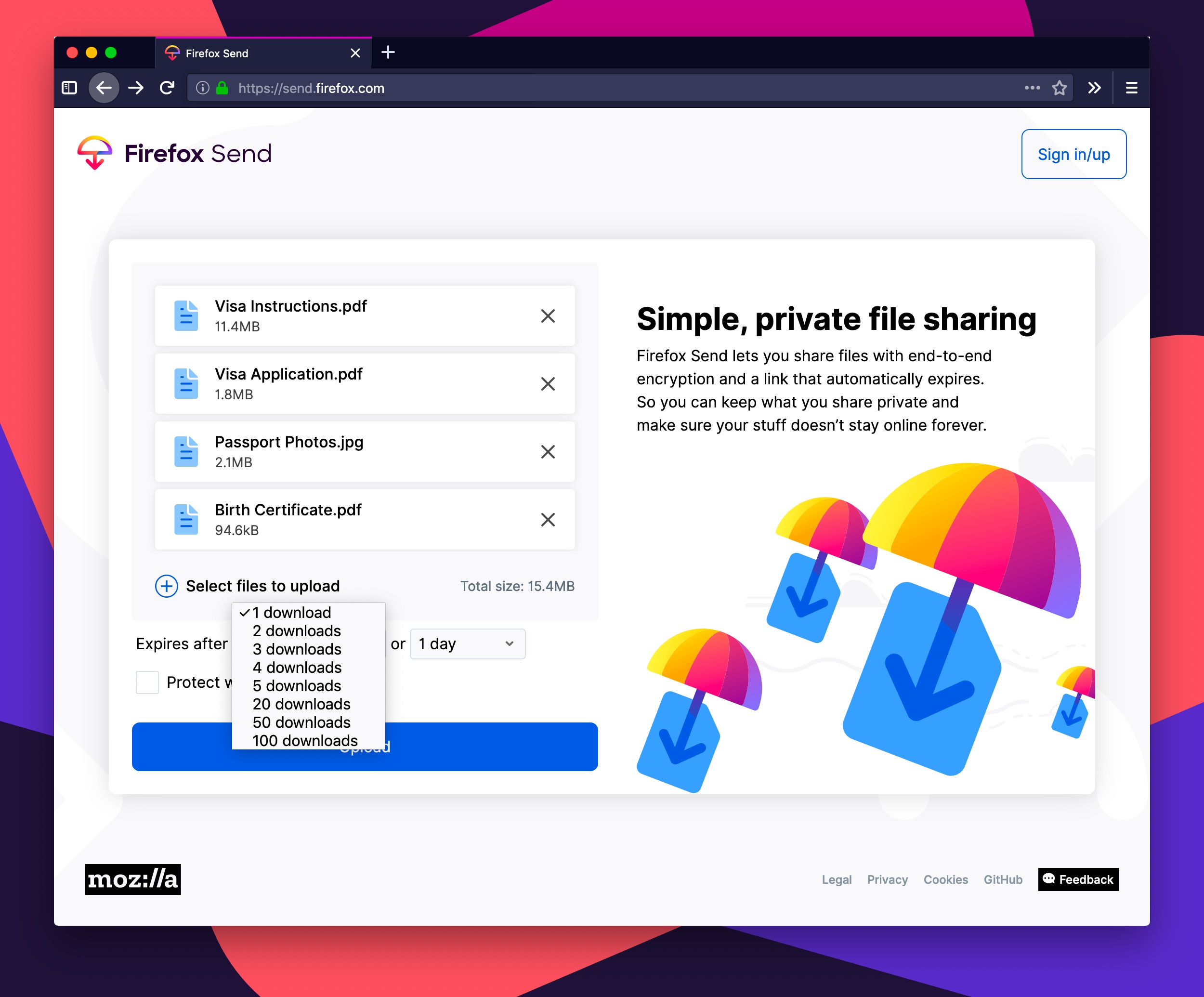Firefox Just Got an End-to-End Encrypted File Sharing Service
Mozilla officially released Firefox Send today. The file sharing service uses end-to-end encryption to keep shared files private.
Firefox Send has been available as a “Test Pilot” experiment since August 2017, but it took Mozilla some time to iron out all the kinks and ensure that the service will work for more than a handful of people at a time.
Users’ files are first encrypted in the browser and then stored in the cloud, so Mozilla will have to pay for both the bandwidth and the storage of those files. The upside is that the files are ephemeral, as they delete themselves as soon as the intended recipient finishes downloading the file. That means Mozilla doesn't have to hold large files indefinitely, as other file storage services, such as Google Drive or Dropbox, do.
Private File Transfers
Nowadays, just about every file sharing service keeps the users’ uploaded files unencrypted, or they may even mine the users’ data for information the services could use to target you with more personalized ads. There are few tools or services out there that can keep users’ files truly private. Firefox Send aims to use not just the trustworthiness as a Mozilla as a privacy-focused, non-profit organization, but also in-browser end-to-end encryption to keep users’ files private.
Unlike most other file sharing services, Firefox Send doesn’t encrypt users’ data after it arrives on the company’s servers (thus allowing the company itself or anyone with access to that company’s servers to see what’s in the files), but before, on the user’s local machine.
The files can’t be decrypted neither in transit to the servers nor after they’ve arrived on the servers. Only the sender has access to the files and the intended receiver of the files, who will be able to decrypt the files automatically when they finish downloading.
Firefox Send allows you to send files up to 1GB in size, and you can also upload files as large as 2.5GB if you sign-up for a Firefox account.
Get Tom's Hardware's best news and in-depth reviews, straight to your inbox.
Learn more via Mozilla's video below.
Lucian Armasu is a Contributing Writer for Tom's Hardware US. He covers software news and the issues surrounding privacy and security.

